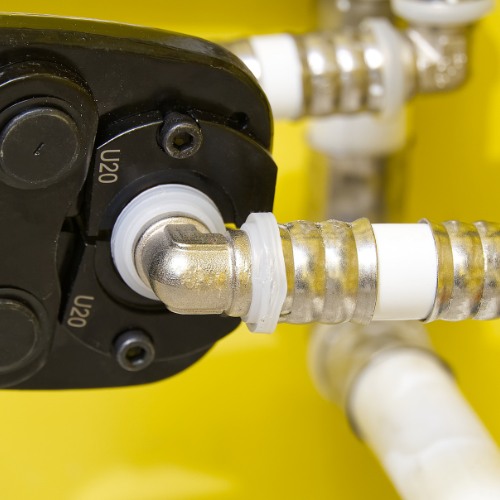Why is PEX plumbing bad?
by siteadmin

PEX is a popular type of plumbing, which is often used in new and existing houses. It's flexible and more affordable than copper pipes. Additionally, PEX can be connected to many other ways.
There are however some drawbacks to PEX as compared with other types. These include rodents, ultraviolet rays and chemicals that could contaminate water.
UV rays
PEX is a type of plastic tube that offers a great alternative for copper pipes. It is flexible and can easily be bent around all corners without the need of elbow fittings. This makes the installation much easier and lowers the possibility of leaks.
However, this pipe can be affected by ultraviolet rays. This can lead the pipe to crack or break down in its molecular structure.
You should place your pipes indoors and away outdoor walls whenever possible. This can help to avoid freezing and also save you money on heating.
PEX is more durable than copper, so plumbers are switching to it. It has also been proven to last longer. This material can be used for both residential and business plumbing projects.
Rodents
Rats are known for being adept climbers. They can swim well and even reach the sewage lines.
Your home may be at risk if rats chew through PEX pipes. This can cause water damage as well other problems, such flooding.
Many pest controllers believe that rodents like the PEX texture. It is thinner than other types. It's possible this is a coincidence, but it isn’t proven.
Mice, rats and other pests can infest any home. But they are most likely to cause major damage to a PEX pipe-lined home. This can lead to extensive cleanup and high-priced repairs. There are several ways that you can protect your PEX from rodents, and keep it from causing any damage. You can also use rodent exclusion, or mouse proofing.
Chlorine
Chlorine is used in water disinfection and also in the manufacture and use of many medicines, plastics, and other products. However, chlorine can cause oxidation in the PEX piping's walls.
This can cause leaks and failures that can contaminate the entire plumbing system. This is especially true when the sun heats the piping.
PEX pipes should be installed underground to avoid direct sunlight. This is because UV radiation can cause pipe to lose flexibility and become brittle.
It is vital to fully understand what happens, and to ensure that your PEX-piping meets the ASTM F2023 standard. This is critical for your safety.
Leaks
PEX plumbing makes a great choice for new houses because it's cheaper than copper and has more flexibility. However, PEX plumbing can also leak and cause extensive damage to a property, just as copper and PVC.
This isn't a problem with your pipe. It's with the fittings and fixtures that connect it to the source of water. You may experience leakage from fittings that are not correctly installed or damaged to the tubing.
PEX piping can develop kinks in time. This can be problematic, especially when used in long pipe runs.
For PEX pipes that are susceptible to kinking or leaking, plumbing professionals suggest wrapping them in foam insulation. This is possible as part of a home’s winterization.
https://www.onpointplumbingandheating.com/
PEX is a popular type of plumbing, which is often used in new and existing houses. It's flexible and more affordable than copper pipes. Additionally, PEX can be connected to many other ways. There are however some drawbacks to PEX as compared with other types. These include rodents, ultraviolet rays and chemicals that could contaminate…
Recent Posts
- Lawn Care Spring Branch Advocates for Property Care: Combatting Weed Growth and Preserving Curb Appeal
- Lawn Care Spring Branch Advocates for Property Care: Combatting Weed Growth and Preserving Curb Appeal
- Expert Cleaners Lexington Shares Essential Tips for Properly Cleaning Hardwood Floors
- Expert Cleaners Lexington Shares Essential Tips for Properly Cleaning Hardwood Floors
- Your Destination for Premier Dental Care in Las Vegas
